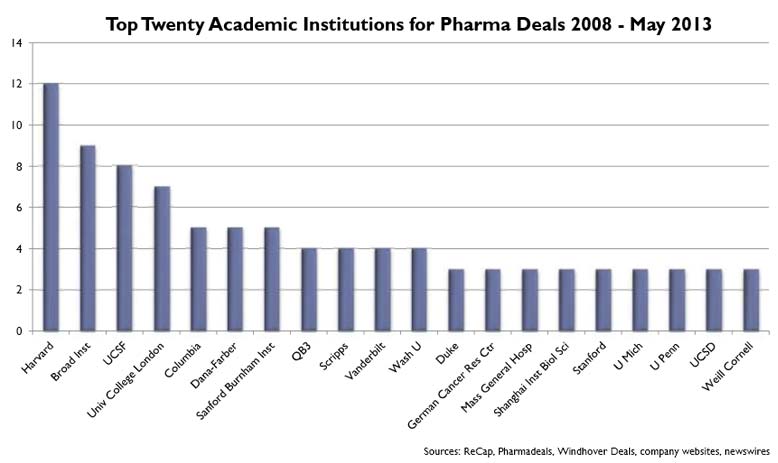The world’s greatest success stories have been borne out of collaboration. Some of the finest research has been made possible because of researchers working with each other, some of the biggest companies have reached new heights by encouraging knowledge sharing within the industry, and of course, some brilliant innovations come from academia-industry partnerships.
Every successful business is supported by a strong research backbone. Subject matter experts allow businesses to gain a knowledge advantage over their competitors, whereas data science experts help them take the right decisions. On the other hand, every researcher needs his/her work to be of value to the real world. Industry insights help academics make sure their work is useful, up-to-date and relevant. It is imperative then, judging by this close interlinking of the two, that businesses and academia be easily accessible to each other.
However, the truth is that there is very less interaction among academics, universities and industries as of today. Networking is still largely limited to conferences, events and in-person meetings. While various factors stunt collaboration, such as geographical and financial barriers, one of the biggest barriers is finding the right partner with the right speciality.
Kolabtree.com is a step towards making the rich pool (over 4000 and counting!) of highly skilled and qualified academic leaders accessible globally, on demand. It offers specialized talent that can be found nowhere else.
Collaboration for researchers

The reasons researchers need to collaborate are many and varied. Collaboration need not be between two people actively performing research, it can also involve one person offering general advice and insights. Depending on level of the contribution, the researcher may also be referred to as a collaborator or co-author.
Researchers often need expertise or technical assistance that is beyond the scope of their skills, knowledge and lab services. Consider this example:
“A chemist developing a nanotube to deliver a drug that will regulate the expression of a gene to prevent the growth of cancer cells or to kill existing cells has many technical problems to solve. The main problem is creating the nanostructure that has the intelligence to respond to the changes in the cellular mileu. That researcher does not necessarily have the expertise to understand what impact the technology he or she is developing will have on the recipient. If the government says in a grant application that special attention will be given to a grant that looks at the social effects of medical nanotechnology, a multidisciplinary collaboration between the chemist and a social scientist might be born.”
It is not uncommon for researchers to get ‘stuck’ when their experiments fail to produce the required outcome. More often than not, researchers require support in a particular subject for only a fixed period of time. Hiring a remote freelancer for a specific task not only provides the opportunity for labs, universities and industries to get on-demand specialist talent but is also cost-effective. For example, a digital research lab in the USA performing an analysis of visual data can now have a Computer Vision researcher join them from anywhere in the world.
Kolabtree offers access to experts in various subjects ranging from life sciences to statistics to experimental design, who can provide insights, identify problems and offer solutions. The advantages are manifold – it not only helps avoid misleading interpretations and achieve accurate results, but it also saves time, effort, energy and cost.
Another cause for concern is the dramatic drop in scientific research funding. According to a Telegraph article published in 2010, the UK is a world leader in scientific research, but is spending only “0.55 per cent of GDP on research and development, compared to Germany’s 0.71 per cent, France’s 0.81 per cent and the USA’s 0.77 per cent”. Funding is also becoming increasingly competitive, limiting the scope of research. Allowing access to and encouraging collaboration among academia can prove beneficial in this situation.
Researchers in a specific subject area frequently need insights from not only those in their own domain, but also from researchers in other subject areas. Interdisciplinary research is increasingly gaining importance, as evidenced by Nature, which points out that the fraction of paper references that point to work in other disciplines has increased over a period of 50 years. A biologist may need a mathematician to study his/her outcomes. A microbiologist making biofuel may need a mechanical engineer to measure its performance in an engine. A startup in India might need a subject matter expert from California, a biologist in Australia might need help with data modelling from a scientist in Germany. Kolabtree facilitates easy knowledge sharing, breaking geographical barriers, while also allowing individuals and experts to set a budget for every project.
An article published in Nature last year says that “the leading edge of scientific discovery is now in the realm of international collaboration networks rather than individuals, institutions or nations.” Research, especially between emerging countries and established countries, helps both of them gain valuable insights that might not be possible within their own geographical boundaries. Co-authorship between institutions is slowly gaining popularity. And one things stands clear: “whether collaboration is voluntary or absolutely necessary, it nonetheless results in high-impact research.”
Collaboration for businesses
It goes without saying that research forms the beating heart and core of every business. Businesses cannot do without subject matter experts. A lot of knowledge lies outside the scope of industries, usually in university labs. And it is becoming even more necessary for industries and academia to collaborate and mutually benefit from partnerships.
Science | Business quotes Carlos Härtel, chief technology and innovation officer at the GE Global Research Center–Europe, as saying that companies should have the “willingness to collaborate with whoever has the know-how and the human resources”, at the Baltic Sea Region Transnational Research Access in the Macroregion conference (Baltic TRAM) held last month.
Partnerships between industry and academia often occur with bigger, established companies. In a study published in Elsevier, we find that the top 20 institutions for pharma deals are well-established universities. Here, we are only talking about mega-partnerships that companies like AstraZeneca and GSK can access. Smaller industries may not be able to afford or even know of research services that they can make use of.

Elisabeth Reimer Rasmussen at Medtronic Denmark recently formed a collaboration with Julie Grew, a PhD student from the University of Copenhagen. She says that even though the company was not actively seeking to hire someone to perform anthropological analyses, “Grew’s fresh perspective has already changed thinking about patient satisfaction.” This reinforces the fact that collaboration is healthy, and that two (or more) heads are better than one!
Kolabtree allows small and medium enterprises access scientific expertise, that help them make better-informed decisions and offer better solutions. It offers academia and industry personnel to interact on a one-on-one basis, allowing them to access knowledge without having to compromise on their budgets as well as policies.
Collaboration is the way forward
Open innovation benefits all parties, and is becoming the need of the hour. Researchers collaborating across institutions and countries now have access to improved creativity, better techniques, deeper research, less risk, and higher publication chances. Academia-industry partnerships are also a win-win situation for everyone. While industries achieve greater success by having access to the latest research, academia in turn receive an enhanced reputation, funding opportunities and access to industry data. Since we’ve already established the importance of collaboration, it seems that the natural way forward is to encourage partnerships to allow for better decisions, better innovation and better progress.





